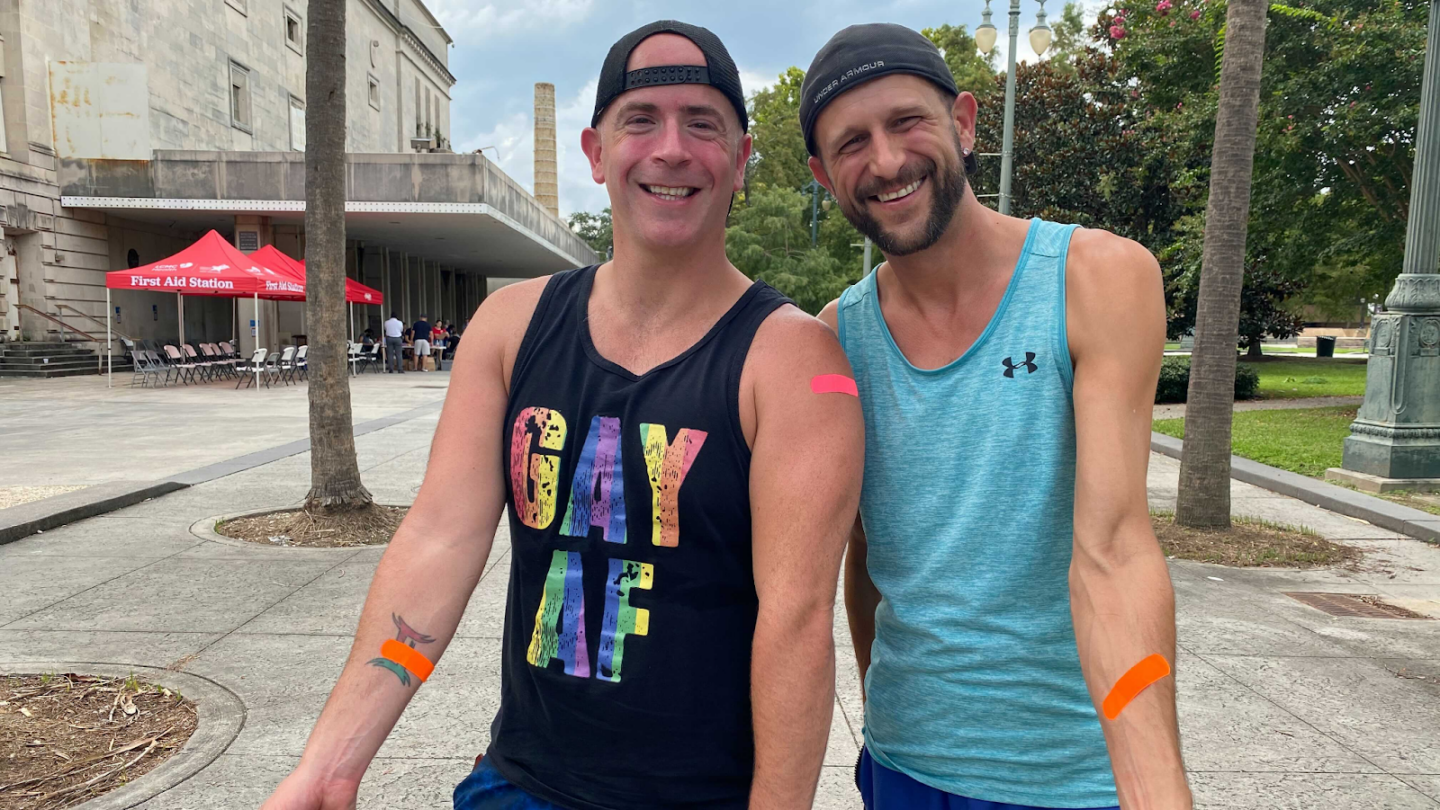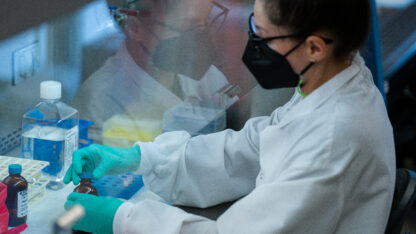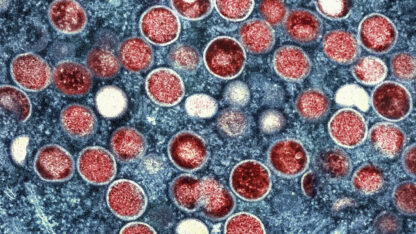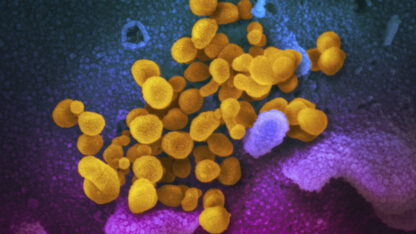Georgia health providers credit LGBTQ community with helping reduce spread of mpox

As the U.S. Department of Health and Human Services prepares to end its public health emergency for mpox in January, health providers and public officials are reflecting on the public health response to the virus and lessons learned from treating it.
“I think people really took the outbreak to heart and took care of themselves, and that really made a huge difference,” said Dr. Melanie Thompson, an Atlanta physician who treated some of the earliest cases. “I think the community deserves a huge amount of credit for bringing this outbreak under control.”
Dr. Thompson spoke to host Jim Burress on WABE’s “All Things Considered” about what she’s observed from treating patients, and the elements that kept mpox from becoming another COVID-19.
She said she hasn’t been surprised by the decline in new cases of mpox and attributes it to the effort to educate and get vaccinated by those most at risk for getting infected within the LGBTQ community.
The World Health Organization recently decided to rename the virus formerly known as “monkeypox,” due to concerns the original name was discriminatory and stigmatizing.
Thompson said some of the stigma around the painful and disfiguring ailment might have contributed to those at risk-taking extra precautions to avoid contracting mpox.
However, mpox isn’t eradicated and efforts continue to reach still-affected communities. Leading that effort for Fulton County is Joshua O’Neal, Director of the Sexual Health program at the Fulton Board of Health, who also joined “All Things Considered.”
“Monkeypox is not gone, but in Fulton County, I think in the last couple weeks we’ve seen between 6 and 8 infections,” said O’Neal.
O’Neal agreed there were aspects of the public health response that need to be improved ahead of future threats but said that local public health officials and Atlanta’s LGBTQ community can take a good deal of credit for keeping cases down.








